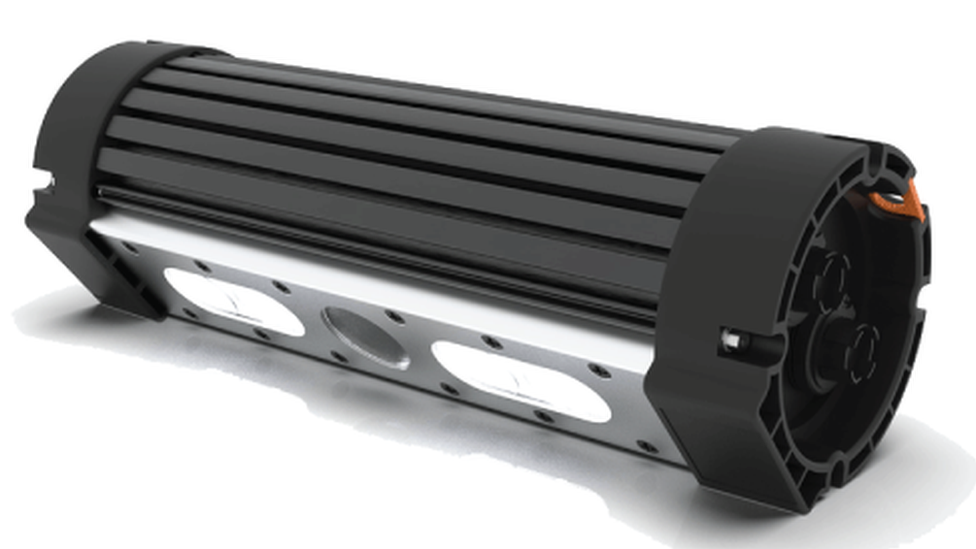Light technology firm strikes deal with US Army
- Published

Scottish high-tech firm pureLiFi has announced a multi-million dollar deal to supply the US military with an optical wireless communication system.
The Kitefin li-fi system harnesses the light spectrum rather than radio frequencies to transmit data securely.
The deal with the United States Army Europe and Africa is the world's first large-scale deployment of li-fi technology, according to the company.
PureLifi said $4.2m (£3m) had been invested in the deployment.
Li-fi - short for "light fidelity" - is an emerging technology first developed in Edinburgh.
The term was coined by Prof Harald Haas from the University of Edinburgh, who In 2011 demonstrated how an LED bulb equipped with signal processing technology could stream a high-definition video to a computer.
According to pureLifi, while radio frequencies can be "detected and targeted", its technology cannot be detected outside of its defined "cone" of coverage.

The Kitefin li-fi system harnesses the light spectrum to transmit data securely.
PureLifi said its Kitefin system would be deployed by the US military in "real tactical and strategic environments", following an initial pilot staged in 2019.
Andrew Foreman, chief technology officer with the US Army in Europe and Africa, said: "Including optical wireless in the commander's toolbox is imperative to the survival of communications, command and control systems and, more importantly, soldiers."
PureLifi described the deal as an "inflection point in the adoption of li-fi technology".
'Unprecedented benefits'
Chief executive Alistair Banham said: "If one of the most significant and advanced defence organisations in the world can rely on li-fi for the most critical of communications, li-fi can offer unprecedented benefits to the consumer.
"Li-fi, like so many technologies before it, is on a classic journey of adoption in defence to widespread acceptance in the consumer market and eventually li-fi in everyone's home.
"This first major deployment with the US Army Europe and Africa is just the beginning."
According to pureLifi, li-fi technology could "unleash more reliable wireless communications with unparalleled security", compared with conventional technologies such as cellular, wi-fi and Bluetooth.
Several years ago, the University of Edinburgh spin-out secured investment of $18m (£12.9m) to help the company bring its products to the mass market.
Investors included an investment company from Singapore and the Scottish Investment Bank, an arm of Scottish Enterprise.
In 2019 pureLiFi launched gigabit components designed for integration into mobile phones and consumer electronics.
Related topics
- Published27 November 2015
